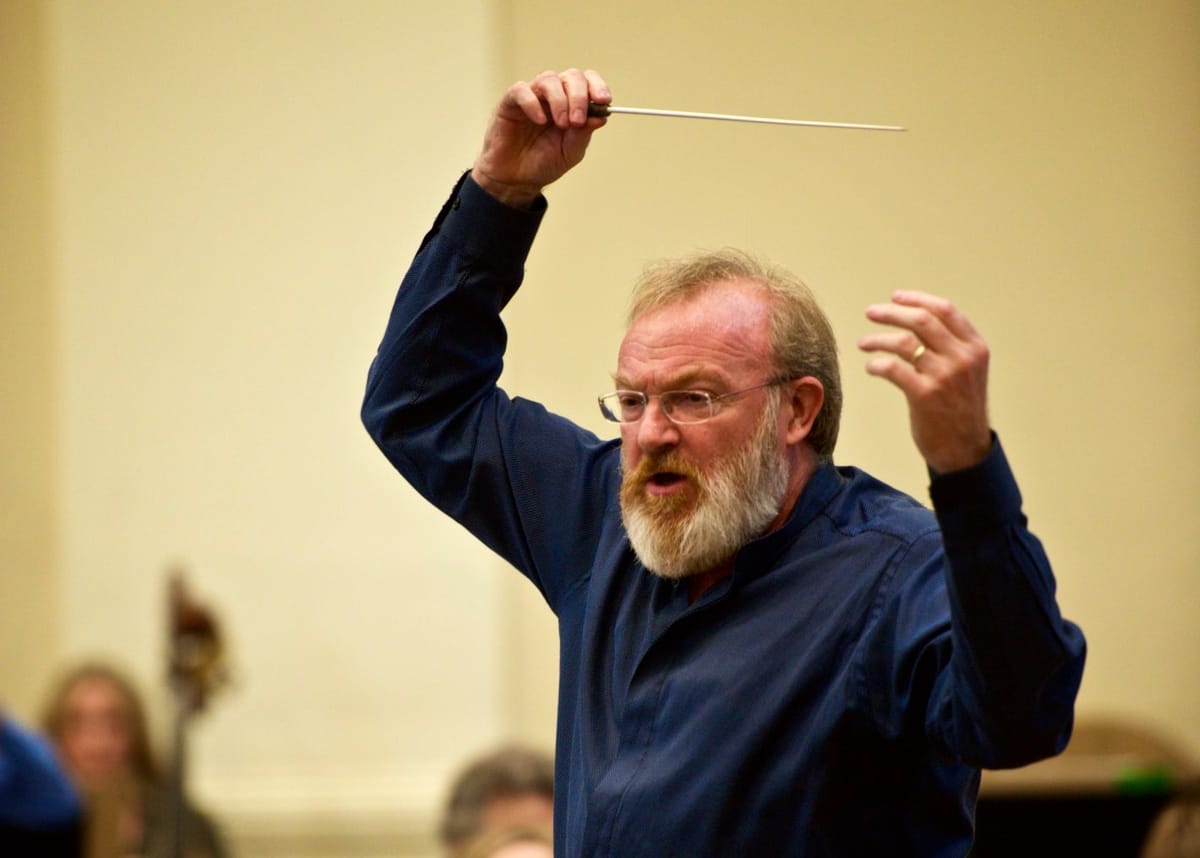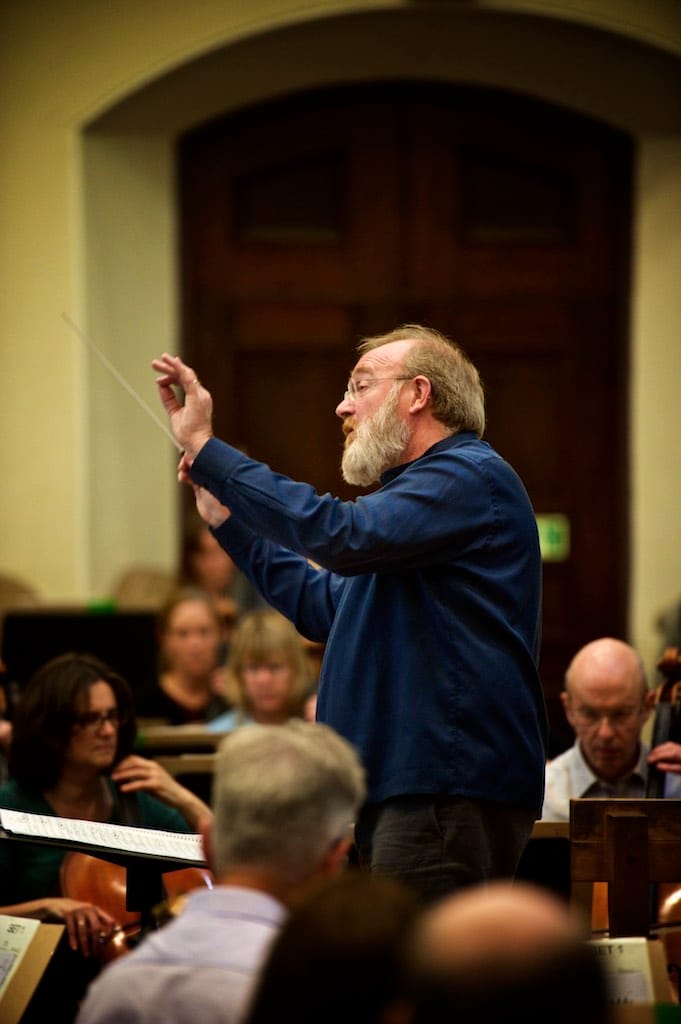Martyn Brabbins: Shaping the Future of Symphonic and Operatic Music
Martyn Brabbins, a celebrated conductor and advocate for British composers, reflects on his journey from studying with Ilya Musin to leading renowned orchestras worldwide, offering a glimpse into his artistry, influences, and future ambitions.

Martyn Brabbins stands as one of the most versatile and respected figures in the world of classical music today. With a career spanning over three decades, his journey from studying conducting under the legendary Ilya Musin in Leningrad to leading world-renowned orchestras and operas is a testament to his unwavering dedication and artistry. Recently appointed Chief Conductor of both the Malmö Symphony and the Symphony Orchestra of India, Brabbins is set to begin these roles in the 2025/26 season, marking another milestone in his remarkable career.
Known for his deep commitment to music, Brabbins has conducted hundreds of world premieres and is an advocate for British composers, bringing their works to global audiences. His tenure as Music Director of the English National Opera from 2016 to 2023 was marked by ground-breaking performances, including his swansong with David Alden’s Peter Grimes, a high point in his operatic leadership.
Brabbins has also made a significant impact in symphonic music, appearing with top international orchestras such as the Royal Concertgebouw, the San Francisco Symphony, and the BBC Symphony, and earning accolades for his extensive discography of nearly 150 recordings. Recognized with prestigious awards such as the RPS Conductor Award, three Gramophone Awards, and the Cannes Opera Award, his contributions to music are celebrated across the globe.
In this interview, Brabbins reflects on the highlights of his illustrious career, shares his vision for his new roles, and discusses the profound influences that have shaped him as a conductor and educator.

Nikhil Sardana: With your upcoming appointments as Chief Conductor of the Malmö Symphony Orchestra and the Symphony Orchestra of India, how do you plan to shape the artistic direction of these ensembles?
Martyn Brabbins: It’s an honour and a privilege to take on these roles, and I am absolutely thrilled about the opportunities ahead. Both orchestras have placed their trust and confidence in me, which is deeply humbling. Shaping the artistic direction of any organization is a collaborative endeavour. It involves meaningful consultation with the management teams, the artistic oversight committees, and—most importantly—the musicians themselves.
For Malmö, in particular, there is a strong sense of ownership and pride among the orchestra's members, especially as they celebrate their centenary. They take an active interest in the orchestra’s future, and their input is invaluable. Similarly, the audience plays a crucial role. Whether through concerts at home, tours, or recordings, our goal is to create experiences that resonate with our listeners.
In Mumbai, the Symphony Orchestra of India operates under a unique model, with its seasonal structure and its visionary leadership in Khushroo Suntook. He has done an extraordinary job in championing Western classical music in India. My aim is to build on that foundation, elevating the orchestra’s standards while nurturing its artistic ambitions. Across both ensembles, the goal is to inspire, innovate, and continually strive for artistic excellence.
NS: You’re renowned for championing British composers and conducting hundreds of world premieres. What drives your commitment to British music, and how do you approach interpreting new works?
MB: My journey with British music began early. After my undergraduate studies, I pursued a master's degree in composition. While I eventually focused on conducting, my background in composition fostered a deep respect for the craft. I attended numerous concerts of new music during my student years, immersing myself in works by Boulez, Ligeti, and Lutosławski, alongside the great symphonic repertoire.
This early exposure gave me both an appreciation for contemporary music and an empathy for composers. Having studied composition myself, I understand the immense intellectual and emotional effort required to create music. It’s a profoundly challenging endeavour, and that understanding informs my collaborations with composers.
When interpreting new works, I approach them with curiosity and humility. Living composers, like the great masters of the past, strive to communicate something meaningful. My role is to decipher their intentions—not only the technical aspects of their scores but also their emotional and artistic motivations. This dialogue is often deeply rewarding and provides invaluable insight into their creative world.
NS: With nearly 150 recordings across a broad repertoire, how do you decide which projects to pursue? Are there any works or composers you’re especially keen to record in the future?
MB: In the early stages of my recording career, I primarily worked on projects proposed by labels like Hyperion and NMC. These were often focused on neglected repertoire or contemporary music, such as the Romantic Piano Concerto series and works by Scottish composers. These recordings were opportunities to shine a light on lesser-known but deserving music.
As my career progressed, I’ve had greater influence over my projects. Recent highlights include symphony cycles of Walton, Tippett, and Vaughan Williams. Each of these has been a profound journey. Tippett, for example, is a composer whose imaginative and inventive works deserve more recognition, and I hope to have played a role in bringing his music back into focus.
Looking ahead, I am keen to explore recording opportunities with both Malmö and the SOI. However, the recording industry has evolved, and many factors—artistic, economic, and logistical—determine what is feasible. That said, I am optimistic. With the right partnerships and vision, I believe we can create recordings that showcase the unique strengths of both orchestras while contributing to the broader musical landscape.
NS: Your tenure as Music Director of the English National Opera spanned significant artistic milestones. Looking back, which moments or productions stand out as the most defining?
MB: I served as music director for about seven and a half years. It was an incredibly inspiring position—leading a musical organization of such stature, with its exceptional orchestra, chorus, and music staff, was always demanding but profoundly fulfilling.
One of my first productions was Mozart’s The Marriage of Figaro, a wonderful opportunity to demonstrate versatility across repertoire. That same season, I conducted Richard Strauss's Salome. The experience was transformative; Strauss's extraordinary score remains one of the most musically inspiring works I’ve ever had the privilege to conduct.
Later, the two productions that capped my tenure were particularly memorable. The first was Das Rheingold, directed by Richard Jones. Universally recognized as a resounding artistic success, it was a collaboration where every element aligned perfectly—the English translation, the superb cast, meticulous rehearsals, inspired direction, stunning design by Stewart Lang, and incredible lighting. The energy and passion of the orchestra and the involvement of the chorus, even though they didn’t sing in the piece, elevated the production into something truly unique.
The other was a revival of David Alden’s production of Britten’s Peter Grimes, widely regarded as perhaps the greatest opera in the English language. Alden’s vision for the work was as close to perfection as one could imagine, and his leadership inspired everyone involved. The chorus was nothing short of electrifying.
NS: As Prince Consort Professor of Conducting at the Royal College of Music and Visiting Professor at the Royal Conservatoire of Scotland, what key insights or philosophies do you aim to impart to the next generation of conductors?
MB: Teaching has become an immensely rewarding part of my life. I was fortunate to study with Ilya Musin, one of the greatest conducting pedagogues of all time, during my two years in Leningrad. That experience profoundly shaped me, and I feel a responsibility to give back.
At the Royal College of Music, I conduct the orchestra while the conducting students observe and assist, and I also lead masterclasses. At the Royal Conservatoire in Glasgow, where I’m more deeply involved, I mentor students one-on-one, including through innovative methods like regular Zoom lessons, which became invaluable during the pandemic. This flexibility allows me to stay connected with students while maintaining my professional engagements.
My teaching philosophy is deeply personal. Conducting is a complex and multifaceted discipline, and I believe in understanding each student as an individual. Only by addressing their unique challenges can I help them unlock their potential. My approach is also informed by Musin’s teachings, which emphasized the connection between gesture and sound. Conducting isn’t about beating time; it’s about carrying the sound and physically embodying the music. The subtleties of gesture—the breath and flow—can profoundly influence how musicians respond.
I push my students to develop precision, not just in technical execution but in the nuances that bring a piece to life. Professional musicians are highly attuned to even the slightest gesture, so the conductor’s role demands clarity and purpose. I’m demanding because the stakes are high, but I also strive to inspire confidence and artistry in my students.
NS: With such a prolific and varied career, what goals or challenges do you still aspire to achieve in the coming years, both on the podium and beyond?
MB: I’m committed to continually improving—whether that’s conducting Mahler with greater depth or becoming a better communicator with musicians, audiences, and colleagues. Coming from a humble background, I feel incredibly fortunate to have found a path into classical music. My parents had limited education; my father, a World War II veteran, faced health challenges that left our family with little financial means. Joining an amateur brass band was a life-changing moment for me. They gave me an instrument and lessons, and I practiced diligently. Without that serendipitous opportunity, my life might have taken a very different course.
I carry that sense of gratitude with me every day, and I see music as an extraordinary force for good. My ultimate goal is to share its transformative power—whether through performance, education, or collaboration. Music is, I believe, an essential part of humanity, and if I can help others understand and embrace that, I’ll consider my work worthwhile.






